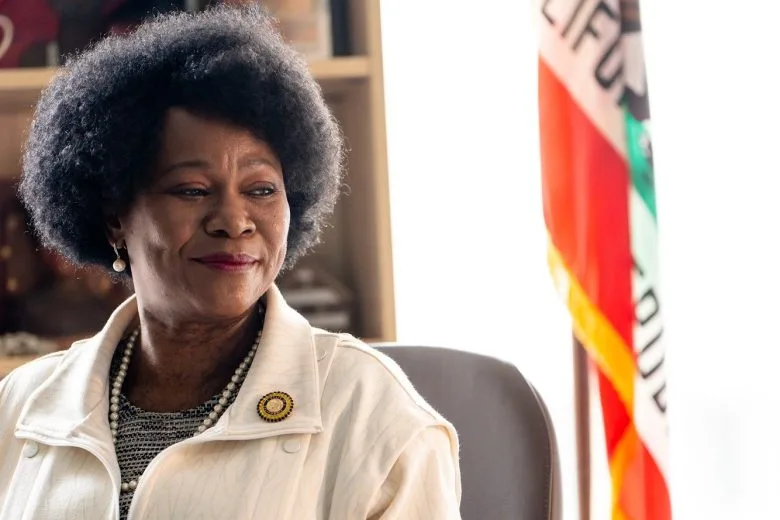California Lawmakers Want Reform, Investment In Alternatives
By Genoa Barrow | OBSERVER Senior Staff Writer
Calls for prison reform in its many forms have made their way to the state Capitol. Members of the California Legislative Black Caucus are among those backing bills in an effort to address concerns across the state. We share a few significant ones here.
Assembly Bill 974

Introduced by: Assemblymember Tina McKinnor (D-Inglewood)
If made law: The bill would provide California natives leaving a state prison or county jail with a free copy of their birth certificate upon release. Formerly incarcerated people frequently face the obstacle of obtaining California ID cards, which are necessary to obtain vital things such as work, housing, education, employment, to open a bank account, or to seek public assistance.
Quote: “The cost of getting a certified copy of a birth certificate, along with the difficulty of navigating layers of state bureaucracy, pose major barriers for those leaving incarceration. Removing the barrier of obtaining this basic piece of identification will significantly improve reentry and positively impact millions of people in a very tangible way.” – McKinnor
Assembly Bill 1418
Introduced by: McKinnor
If made law: AB 1418 would change existing eviction law, including prohibiting cities and counties from requiring landlords to use criminal background checks, making it illegal to evict people for past criminal allegations that didn’t end in convictions and prohibiting landlords from evicting an entire household when a household member is convicted of a crime. AB 1418 has passed the Assembly and Senate. It’s now on Gov. Gavin Newsom’s desk. If he signs it, the law takes effect Jan. 1, 2024.
Quotes: “California’s housing crisis has been worsened by policies that further marginalize Black and brown residents under the auspices of seeking ‘crime-free’ neighborhoods.” – McKinnor
“The history of racist policies that drive mass incarceration and have disproportionately criminalized people of color make those same people the targets for exclusion and eviction by landlords due to these so-called ‘crime-free’ housing programs. This bill would help increase access to housing for, and prevent discrimination against, the people most impacted by mass incarceration.” – Gail Yen, California policy director of Root and Rebound, a bill sponsor
Assembly Bill 1104

Introduced by: Assemblymember Mia Bonta (D-Oakland)
If made law: AB 1104 would change California’s penal code to clarify the purpose of incarceration as rehabilitation and preparation for re-entry rather than “public safety achieved through punishment, rehabilitation, and restorative justice.” Bonta says the legislation continues moving California’s prison system away from a “hyper-punitive” approach to mass incarceration and toward a system that “centers rehabilitation, humanity and healing.”
Quote: “My bill calls for incarcerated individuals being afforded enhanced opportunities for restorative justice, trauma healing, education and participation in community-based programming designed to assist in successful reintegration after release.” – Bonta
Assembly Constitutional Amendment 4
Introduced by: Assemblymember Isaac Bryan (D-Los Angeles)
If made law: The amendment, introduced in February, would remove part of the state constitution that specifically disqualifies people serving in a state or federal prison from voting. Supporters say passage would reduce recidivism for incarcerated people of color in California. Opponents argue that people “who have shown disrespect for our laws” should not “be part of forming them.” Two states, Vermont and Maine, already allow people in prison to vote.
Quote: “Voting rights are only rights if they are endowed to all citizens of our country, not just the ones who haven’t grown up in communities that were left out of the social contract, communities that have lower life expectancies, fewer schools, lower public health infrastructures, higher environmental hazards and the only public civic infrastructure that we’re willing to constantly invest in is law enforcement in those communities, which is why they are disproportionately impacted by mass incarceration and subsequently disenfranchised.” – Bryan
Assembly Constitutional Amendment 8

Introduced by: Lori Wilson (D-Antioch)
If made law: Proponents of the bill liken prison labor to slavery, with the government and private corporations making billions of dollars off the backs of incarcerated persons who have no choice in doing the work. ACA 8 would change California’s constitution “to prohibit slavery in any form.” First introduced as ACA 3 by former Assemblymember Sydney Kamlager, the bill passed the Assembly on Sept. 13 on a 68-4 vote and now heads to the Senate.
Quote: “That’s a very important bill that can have a lot of influence on where we’re going in this decarceration movement. As we’re de-incarcerating folks, what do we need to put in place to really rehabilitate? To me, a job is key – having something positive to work toward and having portable skills that you can use anywhere, anyplace anytime.” – Senator and labor advocate Lola Smallwood-Cuevas
Also Worth Noting
Assembly Bill 1226, introduced by Assemblymember Matt Haney (D-San Francisco) and signed into law July 21, requires the California Department of Corrections and Rehabilitation to place an incarcerated parent, legal guardian or caregiver of a minor child in the correctional facility closest to that child’s home. Parents who already are incarcerated can request to be transferred to a prison close to where their child lives.
According to the CDCR, only 25% of incarcerated people in California state prisons are placed in institutions less than 100 miles from where they live. Families often can’t afford to travel long distances for visits. Lack of family visits and support can cause issues for incarcerated people, including stress, depression and further isolation.
Senate Bill 94, introduced by Sen. Dave Cortese (D-San Jose), passed the Senate in March. It allows judges to use their discretion in reviewing cases of people sentenced to life-without-parole if the person has been incarcerated for at least 25 years. Cases will be evaluated by the governor before an inmate could be released.
Editor’s note: Over the coming weeks, “Inside Out” will highlight the experiences of formerly incarcerated individuals and their families, look at efforts to improve local jail and prison facilities, and share the perspectives of Black correctional staffers and attorneys who work on change from within and activists who have dedicated their lives to shining a light on the inequities of the criminal justice system.





